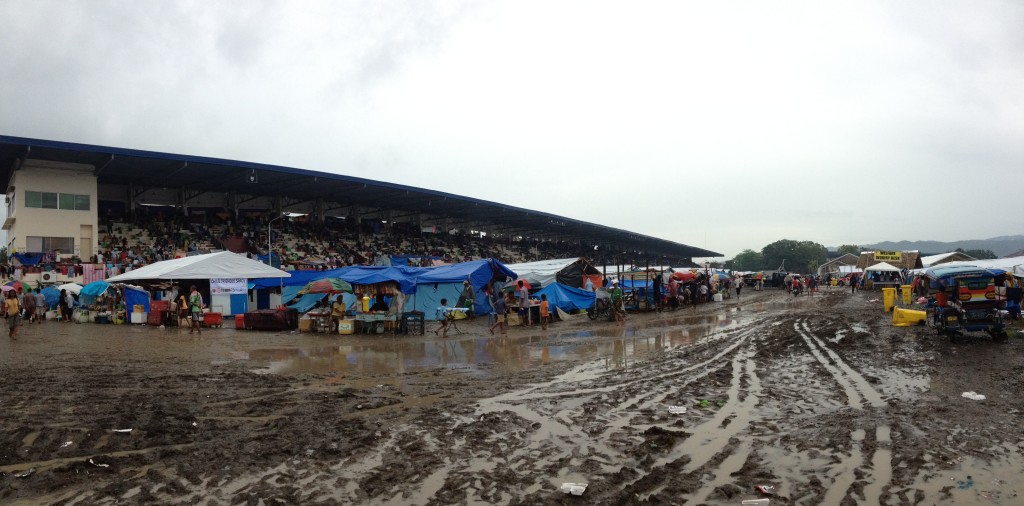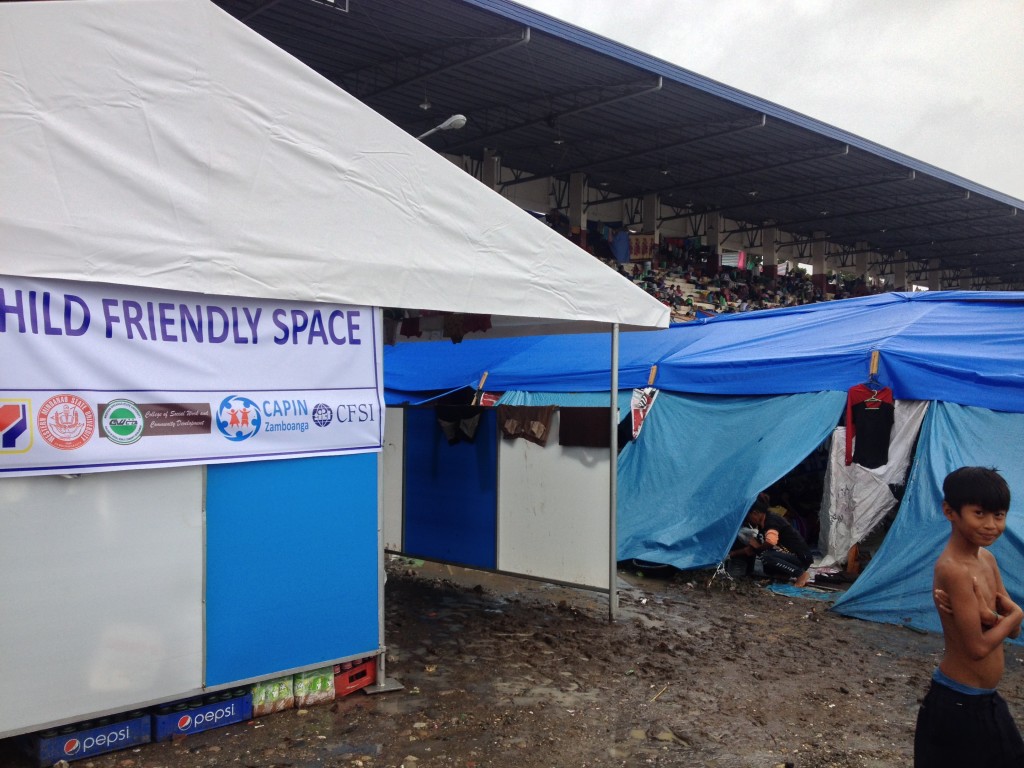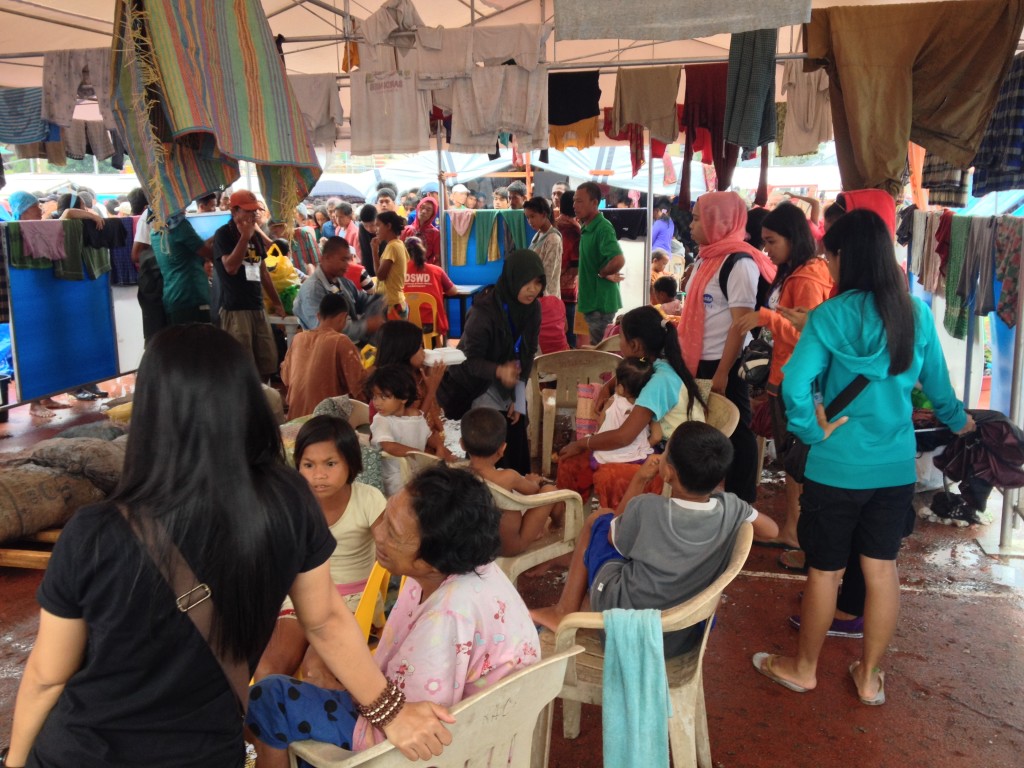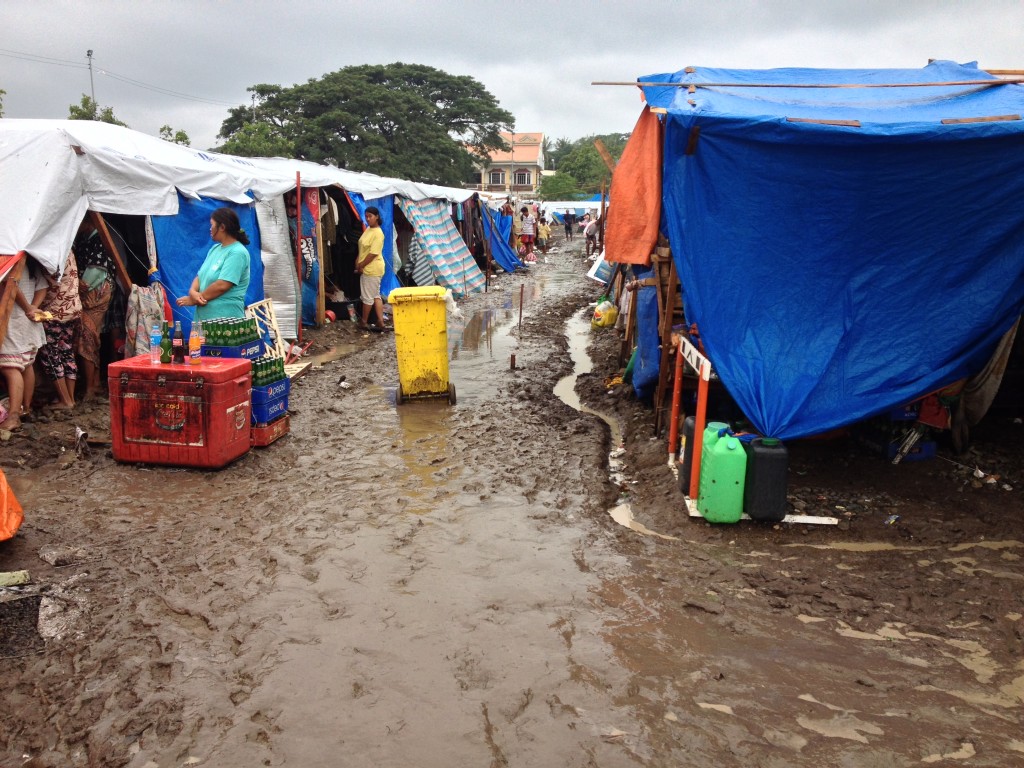Incessant heavy rain throughout the past week has made life more difficult for the tens of thousands of people still seeking shelter in evacuation centers in Zamboanga City.
The conflict in September between the Moro National Liberation Front (MNLF) and the Armed Forces of the Philippines in Zamboanga City, Mindanao, in the southern Philippines, resulted in the displacement of more than 100,000 people, most of whom took shelter in more than 30 evacuation centers set up throughout the city.
The largest of the evacuation centers – the Joaquin F. Enriquez Memorial Sports Complex – is virtually submerged in mud. Congestion also remains a big issue, and the limited sanitation facilities are not able to support the present demand.

In response to the continuing humanitarian crisis, CFSI has provided psychosocial support sessions to an estimated 600 children aged from three to 17 and has mobilized 11 field assistants. In partnership with Western Mindanao State University’s College of Social Work and Community Development (WMSU-CSWCD) CFSI is mentoring and supervising 70 student volunteers who are now conducting regular psychosocial sessions. Both CFSI and WMSU-CSWCD are working in close collaboration with the Department of Social Welfare and Development (DSWD), which is taking the lead for child protection services.
Social workers and field assistants have also established referral networks with the Mental Health and Psychosocial Support (MHPSS) Cluster led by the Department of Health (DOH) and supported by DSWD. CFSI is also active in the MHPSS Cluster, providing technical assistance as required. In addition, in partnership with the Child Abuse Prevention and Intervention Network (CAPIN) and WMSU-CSWCD, CFSI has set up child-protection desks staffed by trained volunteers in order to provide information and referral services.
CFSI staff and student volunteers have also mobilized 30 community volunteers to set up five Child-Friendly Spaces that are expected to serve an estimated 1,000 displaced children. The community volunteers were engaged under a cash-for-work scheme in which each volunteer received PhP 450 for two days’ work. Psychosocial sessions which initially began the previous week as free play sessions have been reconfigured to thematic learning sessions based on the psychosocial manual jointly developed by CFSI and UNICEF. Thematic sessions include self-regard, regard for others, and hygiene and health promotion.
For education services, CFSI has reached agreement with the Department of Education (DepEd) to conduct psychosocial activities at the Child-Friendly Spaces in the Joaquin F. Enriquez Memorial Sports Complex, which will in the coming weeks transition to regular classroom activity to be carried out by DepEd teachers.

CFSI staff and student volunteers have mobilized 30 community volunteers to set up five Child-Friendly Spaces in the largest of the Zamboanga City evacuation centers – the Joaquin F. Enriquez Memorial Sports Complex – that are expected to serve an estimated 1,000 displaced children.

As a result of the heavy rain, one of CFSI’s Child-Friendly Spaces is temporarily being used by DSWD for food distribution.

So heavy has the rain been that tents in some areas of the evacuation center are submerged in mud. This cluster of tents is close to a row of portable toilets, which is now almost inaccessible.

